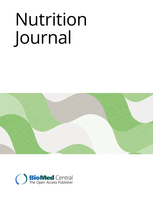 A paper that suggested that eating flaxseed could reduce inflammation in men at risk of heart disease has been retracted, after researchers pointed out the paper’s flaws.
A paper that suggested that eating flaxseed could reduce inflammation in men at risk of heart disease has been retracted, after researchers pointed out the paper’s flaws.
The retraction is part of a large initiative on the part of nutrition researcher David Allison and colleagues to clean up the literature, which we’ve previously covered. Regarding this paper, he told us:
When we looked at the study…it was very clear that the statistical methods used were not correct. These are not matters of debate or opinion, these are just…verifiably incorrect.
The Nutrition Journal published the paper in January 2015, and retracted it in June 2016, one day after publishing a letter by Allison and a colleague critiquing the paper.
Here’s the retraction notice for “Impact of weight loss diet associated with flaxseed on inflammatory markers in men with cardiovascular risk factors: a clinical study:”
The Editor is retracting this article [1] because of concerns raised after publication with respect to the methods and the statistical analysis [2] which the authors have not been able to adequately address [2]. We apologise to all affected parties for the inconvenience caused. All authors support this retraction.
The 2015 paper has been cited three times, according to Thomson Reuters Web of Science.
Originally, the study’s authors concluded:
…flaxseed added to a weight loss diet could be an important nutritional strategy to reduce inflammation markers such as CRP and TNF-α.
But, after trying to replicate the results from data made publicly available from the study’s authors, Allison and Rositsa Dimova, a scientist at the US Food and Drug Administration, sent a letter to the journal.
In their letter, Allison and Dimova raised two main concerns about the flaxseed study:
…the authors draw conclusions that cannot be supported by the statistical analyses used. Moreover, discrepancies between the published paper and clinical trial registration raise questions.
What’s more, Dimova and Allison write, the authors did not use the “legitimate tests” for the hypotheses being tested:
By omitting direct between-group comparison of the outcome variables and by relying on the within-group results, Cassani et al.’s article misinforms. Specifically, the article states that a significant decrease in the inflammatory markers CRP and TNF- α was observed only in the flaxseed group.
But the authors of the study should be “commended” for making their data available online, write Dimova and Allison, who later used the study’s data to run their own tests, and found “no significant difference between the two groups.”
Dimova and Allison also noted:
The study registration on ClinicalTrials.gov shows that the study was completed in 2007 and yet registered in 2014. Moreover, it was designed as a four-arm study, yet the article reports results from only two groups and offers neither explanation for nor mention of this discrepancy. This seems inconsistent with the transparency that clinical trials registration is designed to promote.
But Cassani et al, authors of the original study from the University of São Paulo in Brazil, responded with another letter (available under the acknowledgement section of Dimova and Allison’s article).
Cassani et al pointed out that they had deposited their data in a Brazilian database since before the trial began, and the omission of two groups in the published study was a result of the reviewers’ suggestions (one Nutrition Journal referee and one from a prior submission in a different journal).
Calling their analysis an “honest mistake,” their letter concludes:
…all authors agree that this study does not allow us to conclude that there was decrease in the blood levels of CRP and TNF-alpha that could be attributed to flaxseed.
We’ve reached out to Priscila Giacomo Fassini, corresponding author of the original paper from the University of São Paulo for further clarifications, and will update the post with anything else we learn.
We’d like to give this episode a “doing the right thing” nod, as Allison and his colleagues have lamented how difficult it is to encourage editors to take action on problematic papers — including publishing letters outlining their concerns.
Like Retraction Watch? Consider making a tax-deductible contribution to support our growth. You can also follow us on Twitter, like us on Facebook, add us to your RSS reader, sign up on our homepage for an email every time there’s a new post, or subscribe to our new daily digest. Click here to review our Comments Policy. For a sneak peek at what we’re working on, click here.